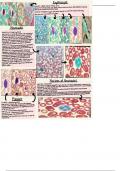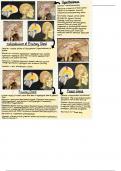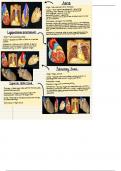BI210
Massachuetts College Of Pharmacy & Health Sciences
All 4 results
Sort by

-
Endocrine/Histology/Cardiac Systems
- Package deal • 2 items • 2024
-
- $10.49
- + learn more
These three systems are interconnected in maintaining the body's overall function and homeostasis. The endocrine system regulates various physiological processes, histology helps understand the structure of tissues and organs, and the cardiac system ensures the transportation of essential substances throughout the body.

-
Endocrine System
- Class notes • 12 pages • 2024
-
- $7.99
- + learn more
The endocrine system is a complex network of glands and organs that secrete hormones, chemical messengers, into the bloodstream to regulate various physiological functions and maintain homeostasis within the body. These hormones influence the activities of target cells and organs, coordinating processes such as growth and development, metabolism, immune function, and reproductive function. Key components of the endocrine system include: Hypothalamus: Located in the brain, the hypothalamus ...

-
Histology
- Class notes • 4 pages • 2024
- Available in package deal
-
- $7.99
- + learn more
Histology is the branch of biology that involves the study of the microscopic structure of tissues and organs. It is also known as microscopic anatomy. Histology aims to understand the organization and composition of cells, tissues, and organs at the cellular and subcellular levels. This field plays a crucial role in medical and biological research, as it helps to elucidate the structure-function relationships in living organisms. Key aspects of histology include: Microscopic Examination: ...

-
Anatomy of the Heart
- Class notes • 11 pages • 2024
- Available in package deal
-
- $7.99
- + learn more
The heart is a muscular organ that plays a crucial role in the circulatory system, responsible for pumping blood throughout the body. Located in the chest, slightly to the left, the heart is enclosed within the pericardium—a double-walled sac. Its primary function is to ensure a continuous flow of oxygenated blood to all tissues and organs while simultaneously removing deoxygenated blood and waste products. Key features and components of the heart include: Muscular Structure: The heart i...

$6.50 for your textbook summary multiplied by 100 fellow students... Do the math: that's a lot of money! Don't be a thief of your own wallet and start uploading yours now. Discover all about earning on Stuvia


